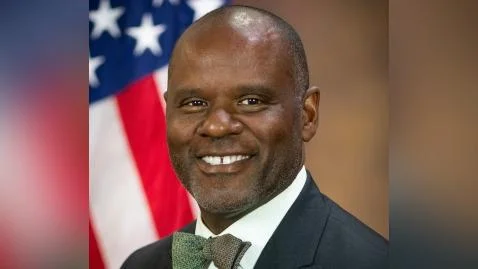Ismail J. Ramsey, U.S. Attorney | U.S. Attorney for the Northern District of California
A federal jury in San Francisco has convicted Ruthia He, founder and CEO of the digital health company Done, and David Brody, its clinical president, for their roles in a scheme to illegally distribute Adderall over the internet and commit health care fraud. The convictions follow a years-long investigation into the company’s practices related to prescription stimulants.
According to court documents and evidence presented at trial, He and Brody worked with others to create a business model that provided easy access to over 40 million pills of Adderall and other stimulants through an online subscription service. The company spent more than $40 million on targeted advertisements during the COVID-19 pandemic, aiming to convince people they had ADHD and needed medication. Prosecutors said Done used deceptive advertising strategies on social media platforms and paid for keyword searches targeting individuals seeking Adderall without a legal prescription.
U.S. Attorney Craig H. Missakian for the Northern District of California stated, “Not all drug dealers operate in the shadows or on street corners. Some, like Ruthia He and David Brody, use computers and social media instead. Doctors take an oath to do no harm. David Brody and other doctors were only too willing to sell their integrity to He and put money ahead of patient wellbeing. Medical necessity must always drive the decision to prescribe controlled substances like Adderall and other stimulants. Ruthia He and David Brody violated that core principle when they exploited telehealth rules to push prescription medication, and hurt patients in the process. This prosecution marks the beginning of a sustained effort. Digital health companies that engage in unlawful drug distribution should take notice that they will not escape accountability.”
Acting Assistant Attorney General Matthew R. Galeotti of the Justice Department’s Criminal Division commented, “These defendants carried out a $100 million scheme to unlawfully provide easy online access to Adderall and other stimulants by targeting drug seekers, engaging in deceptive advertising, and putting profits above patient care. This verdict sends a clear message that the Criminal Division will hold accountable criminals who attempt to exploit telehealth to write illegal prescriptions for their personal gain. Innovation in health care must never come at the cost of patient safety, professional integrity, or the rule of law.”
Christian J. Schrank, Deputy Inspector General for Investigations at HHS-OIG said, “This case represents one of the most egregious abuses of telehealth we’ve seen. The defendants built a brazen business model based on addiction, deception, and disregard for patient safety—flooding the market with controlled substances while defrauding federal health care programs. Their intentional disregard for patient safety and the law put lives at risk and eroded public trust in digital medicine. HHS-OIG will relentlessly pursue those who exploit innovation to endanger lives and steal from taxpayers.”
Special Agent in Charge Harry T. Chavis of IRS Criminal Investigation New York added: “The fraudulent acts of He and Brody led to clients’ substance abuse, addiction and, in some cases, overdose. Instead of putting the care of their customers first, they prioritized their own greed by fraudulently prescribing more than $100 million worth of Adderall and other stimulants. These were shameful acts, and a jury of their peers agreed. Both He and Brody will now face the consequences of this egregious fraud.”
The evidence showed that Done imposed limits on clinical discretion by shortening initial appointments well below standard psychiatric examination times while refusing payment for follow-up treatment visits as part of efforts to maximize profit margins.
Nurse practitioners were paid up to $60,000 per month by Done’s leadership team for refilling prescriptions without clinical interaction with patients; an “auto-refill” feature enabled patients—including some who were deceased—to continue receiving monthly prescriptions automatically via email requests.
Internal communications revealed that employees were encouraged with incentives such as luxury vehicles if they broke laws successfully increasing profits; nurses were instructed not only to keep prescribing even when there was evidence patients abused medications but also not discharge them despite family concerns about adverse mental health effects.
To maintain revenue from subscriptions by ensuring insurance coverage for members’ prescriptions at pharmacies nationwide—including Medicare/Medicaid—He, Brody, and others submitted false prior authorization requests misrepresenting adherence to diagnostic guidelines (DSM-5), use of urine drug screens or trials with non-stimulant medications.
In 2022 after media scrutiny about Done’s practices surfaced nationally leading investors/pharmacies raised questions about oversight—defendants made misleading statements denying knowledge or responsibility while internal records indicated otherwise.
When government investigations began He attempted obstruction by moving operations overseas (to China), using encrypted/disappearing messages internally while deleting incriminating documentation; she also transferred funds abroad under shell companies before being stopped leaving the country.
Both defendants were found guilty on multiple counts including conspiracy/distribution of controlled substances (each carrying up to 20 years imprisonment) as well as conspiracy related specifically (for He) toward obstructing justice; sentencing is scheduled for February 25th 2026 before Judge Breyer who will determine penalties according U.S Sentencing Guidelines/statutory factors.
The investigation involved agencies including DEA, HHS-OIG, Homeland Security Investigations (HSI), IRS Criminal Investigation; prosecution was handled jointly by DOJ Fraud Section attorneys along with Assistant U.S Attorney Kristina Green from Northern District California.
Since March 2007 federal strike forces have charged thousands involved in healthcare fraud schemes collectively billing more than $24 billion from government/private insurers; CMS continues working alongside HHS-OIG holding providers accountable.





